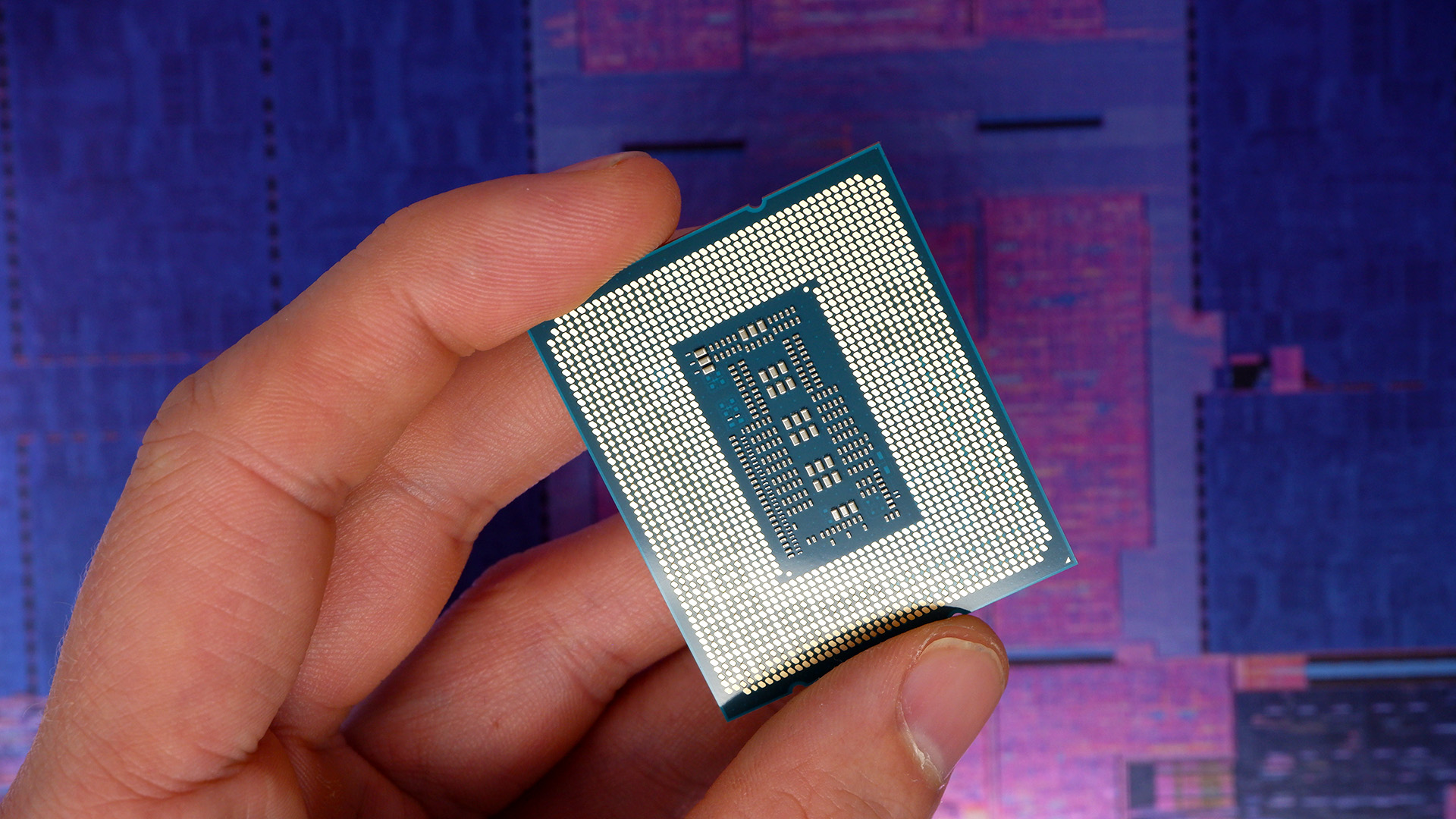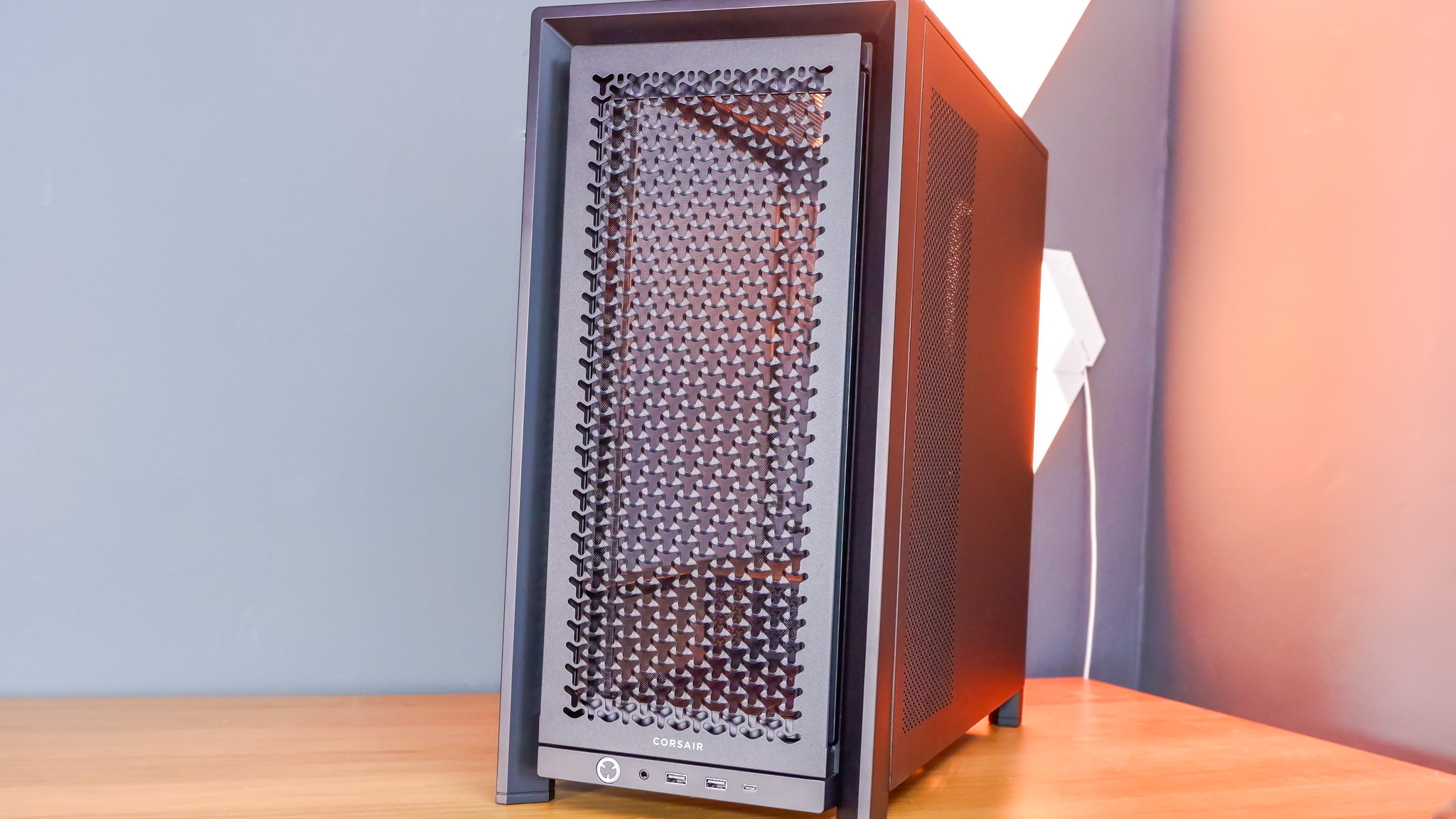
Fingers crossed, eh?
After a couple of weeks in the dark, we’ve now received official word from Intel about the cause of instability issues seemingly plaguing its high-end 13th and 14th Gen CPUs. We’ve also been told how Intel’s planning on fixing it.
An Intel spokesperson tells us: “Based on extensive analysis of Intel Core 13th/14th Gen desktop processors returned to us due to instability issues, we have determined that elevated operating voltage is causing instability issues in some 13th/14th Gen desktop processors. Our analysis of returned processors confirms that the elevated operating voltage is stemming from a microcode algorithm resulting in incorrect voltage requests to the processor.”
Regarding a fix for this microcode issue, we’re told, “Intel is delivering a microcode patch which addresses the root cause of exposure to elevated voltages. We are continuing validation to ensure that scenarios of instability reported to Intel regarding its Core 13th/14th Gen desktop processors are addressed. Intel is currently targeting mid-August for patch release to partners following full validation.”
Even at the start of the year there were some concerns about the stability of the Intel Core i9 13900K and Core i9 14900K, plus some patches for other possibly related issues. The major concerns, however, kicked off just a couple of weeks ago when Dino survivor game developer Alderon Games said they were switching over to AMD servers due to all the Intel CPU crashes, with the failure rate for affected processors being “nearly 100%.”
Tech YouTuber Level1Tech also investigated the issue and found disproportionate issues with the Intel 13th and 14th Gen CPUs, especially when used for server workloads. These issues seem to be primarily with the 13900K and 14900K, with the 13700K and 14900K potentially facing similar issues less frequently.
Since then, we’ve been waiting for official word from Intel, and in the meantime people have been speculating about the potential causes for these stability issues. One popular theory, spurred by talk of chip degradation, has been that the processors are suffering from too much wear and tear thanks to excessive voltages.
Now, it seems, there’s confirmation from Intel that “elevated operating voltage” is the root cause, but this isn’t an inherent flaw to the chips and is instead caused by a microcode algorithm which Intel’s hoping to roll out patches for come mid-August. This, presumably, will mean partnered motherboard vendors rolling out UEFI/BIOS updates for affected CPU users to flash and install.
Intel also tells us it “is committed to making this right with our customers, and we continue asking any customers currently experiencing instability issues on their Intel Core 13th/14th Gen desktop processors reach out to Intel Customer Support for further assistance.”
While microcode-caused CPU instabilities aren’t a fantastic look, they’re certainly much better than irresolvable ones. Let’s hope the patch rolls out soon and that Intel’s actually found the root cause, then.






